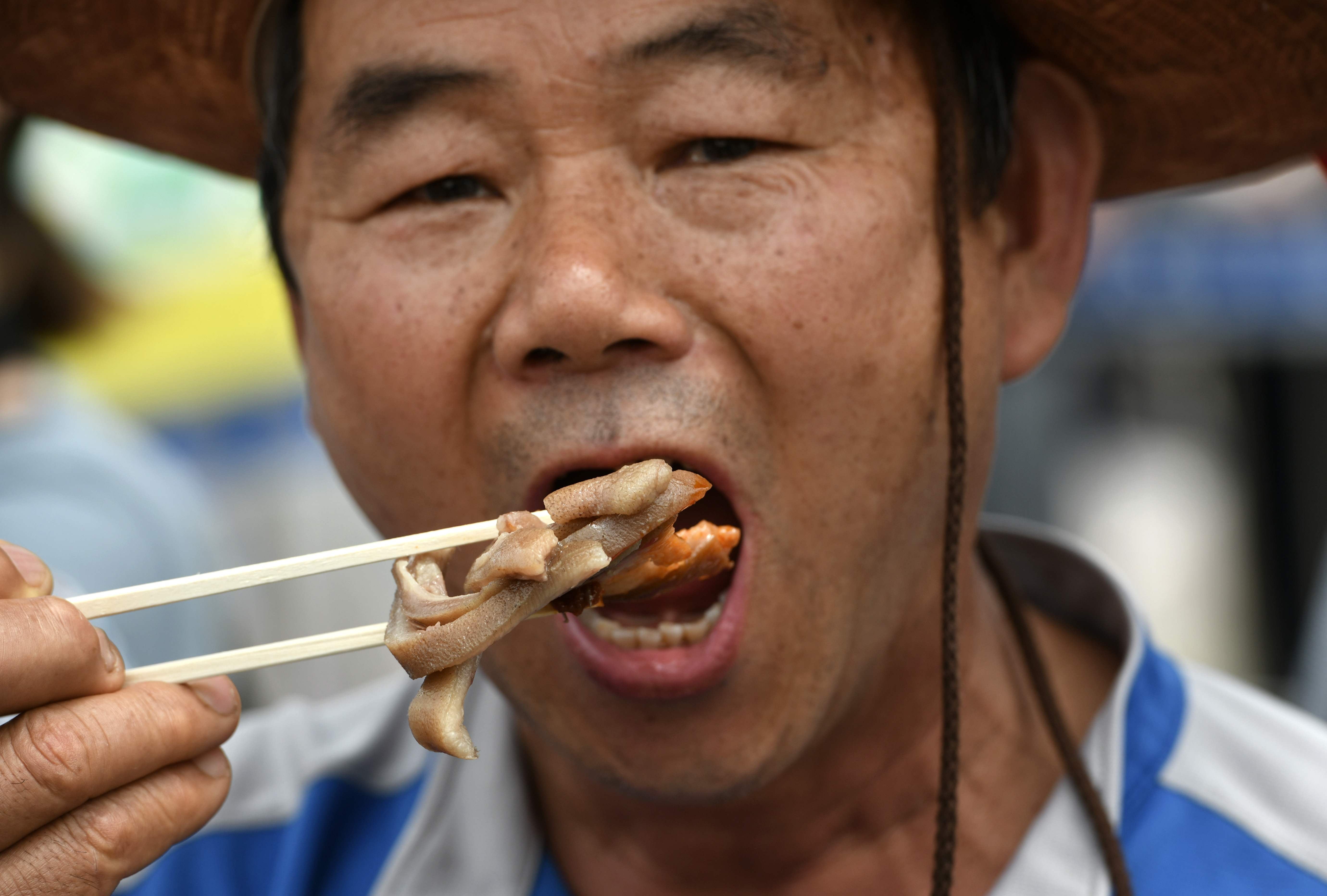South Korea to ban divisive practice of eating dog meat, ruling party says
Minister says government will ‘provide full support to farmers, butchers and other businesses facing closure’ due to new law

File: A South Korean dog farmer eats dog meat during a counter-rally against animal rights activists demonstrating against the meat’s trade in 2019
South Korea is planning to introduce a ban on dog meat, the country’s ruling political party said on Friday, putting an end to a controversy over the ancient custom that has divided generations.
Eating dog meat is neither banned nor explicitly legalised in South Korea. Consumption has dwindled in the country over the years due to criticism from animal rights groups and the younger generation's dying appetite for the meat.
"It is time to put an end to social conflicts and controversies around dog meat consumption through the enactment of a special act to end it," Yu Eui-dong, policy chief of the ruling People Power Party, said at a meeting with government officials and animal rights activists on Friday.
He said the government would introduce a bill to enact the ban before the end of this year, and that it would be expected to sail through the parliament.
The bill, if passed this winter, will allow a three-year grace period to phase out the industry, which would effectively end the consumption of the animals by 2027.
“We will provide full support to farmers, butchers and other businesses facing closure or transition due to this law,” Mr Yu said.
He added that compensation would be provided only to legally registered dog meat farmers, traders, slaughterers and restaurant owners.
South Korean animal rights activists hold likenesses of dead dogs during a protest against the dog meat trade
Agriculture minister Chung Hwang-keun told the meeting that the government would implement a ban quickly.
Nearly one million dogs are "farmed and killed for human consumption" in a year, according to Humane Society International.
"With so many dogs needlessly suffering for a meat that hardly anyone eats, the government’s bill delivers a bold plan that must now urgently be passed by the Assembly so that a legislative ban can be agreed as soon as possible to help South Korea close this miserable chapter in our history and embrace a dog-friendly future," JungAh Chae, executive director of Humane Society International, said in a statement following the meeting.
Anti-dog meat bills have failed in the past because of protests by those involved in the industry, and worries about the livelihoods of farmers and restaurant owners.
Eating dog meat has been an age-old practice on the Korean peninsula and was traditionally seen as a way to beat the summer heat during the Bok Nal season between July and August. While the younger generation has largely rejected the practice, it still holds importance among the older generation and is served in restaurants.
A poll conducted in 2020 found that 84 per cent of South Koreans have never consumed dog meat and 59 per cent of citizens support banning consumption.
South Korean president Yoon Suk-Yeol and first lady Kim Keon Hee are known as animal lovers and have adopted stray dogs. The first lady has been a vocal critic of dog meat consumption.
There are about 1,150 dog breeding farms, 34 slaughter houses, 219 distribution companies, and some 1,600 restaurants serving dog, according to government data.
Subscribe to Independent Premium to bookmark this article
Want to bookmark your favourite articles and stories to read or reference later? Start your Independent Premium subscription today.
Join our commenting forum
Join thought-provoking conversations, follow other Independent readers and see their replies